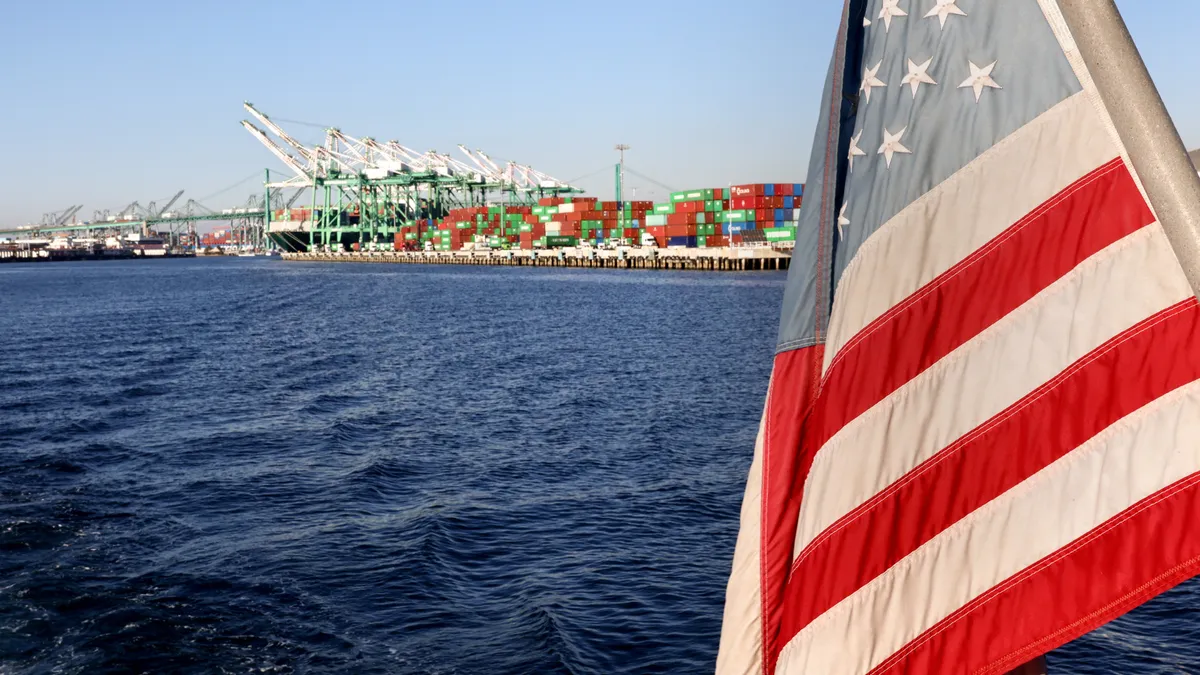Todd Owen is the president of Cross Border Advisory Network. Opinions are the author’s own.
Every day, more than 2 million small parcels enter the United States through one of more than 300 ports of entry at our airports, seaports and land border crossings. The expansive volumes of small parcels arriving each day, in addition to the 90,000 trucks, maritime containers and rail cars which cross our border daily, help fuel the American economy.
As we saw during the COVID-19 pandemic, disruptions at even a small number of ports can impact the availability nationwide of products that consumers depend on to meet basic everyday needs, and that small businesses rely upon to compete in a global marketplace.
Our nation’s ports and supply chains need more certainty and predictability. But now Congress is considering modifying a century-old law, known as the de minimis treatment, which allows for low-value shipments to enter the country free from duties and taxes, without having to navigate red tape.
Rolling back this vital tax break would be a step backward for supply chains and business models that have shifted rapidly to meet the needs of American consumers and small businesses. The explosion of e-commerce and the bipartisan increase of the de minimis thresholds from $200 to $800 in 2016 gave consumers enhanced access to an entire world of products. Small businesses — including those that export — also gained expanded options for sourcing components of their finished products.
The more than 822 million de minimis shipments entered the country in 2022, which were subject to risk assessment, targeting and inspection when needed, reached doorsteps quicker and cheaper because of this de minimis treatment. Arbitrarily increasing red tape in the processing of this staggering number of shipments would negatively impact an already fragile port ecosystem.
At U.S. ports of entry, U.S. Customs and Border Protection Officers and Specialists are charged with ensuring that no merchandise entering the country poses a security threat, and that shipments are compliant with all trade laws. CBP’s effective implementation of de minimis has allowed us all to get the items we need cheaper, faster and more reliably, while still assessing risk and ensuring compliance with U.S. laws. Over time, CBP has developed enhanced data collection protocols to augment previous capabilities of addressing noncompliant packages.
There are always obstacles to overcome in processing cargo, whether it is de minimis parcels or higher-value containerized shipments. But these challenges are not insurmountable, and they can be addressed head-on in ways that both preserve the economic benefits of trade facilitation measures, including de minimis, while improving the effectiveness of law enforcement.
- CBP should continue to augment existing programs that allow the agency to partner with responsible companies that serve as valuable sources of industry insight and have the shared goals of developing resilient and compliant supply chains supporting American economic security.
- Ongoing CBP pilot programs that collect data on low-value shipments should be codified in a way that supports existing enforcement authorities and aligns with the current business practices of trade stakeholders.
- Perhaps most important, CBP and other government agencies that regulate small parcels coming into the U.S. should adopt new technologies, from advanced scanning equipment using computed tomography and x-ray diffraction, to artificial intelligence and machine learning applications.
Some have criticized de minimis as a potential pathway for non-compliant goods to enter the country, and there are currently proposals in Congress to limit the availability of de minimis treatment. It is important to remember that CBP’s current risk assessment, targeting and inspection protocols apply to all shipments, including de minimis ones. While the growth in small parcel shipments entered under de minimis does pose challenges for CBP, restricting de minimis would lead to congestion and delays at our ports and require a redirection of CBP resources away from other enforcement actions.
Rather than restricting de minimis, Congress should support CBP with funding and legal authorities necessary to enhance their existing enforcement protocols, receive necessary advanced information, and deploy the most effective technologies available.
I know from my career in CBP leadership that the agency is eminently capable of addressing concerns related to de minimis in ways that preserve the dramatic economic benefits that we have all come to rely upon. Reducing de minimis would be an unnecessary step in the wrong direction as it imposes a regressive, inflationary tax on U.S. consumers, producers and exporters, adding stress to our national port infrastructure without addressing the underlying need to modernize cargo processing.













